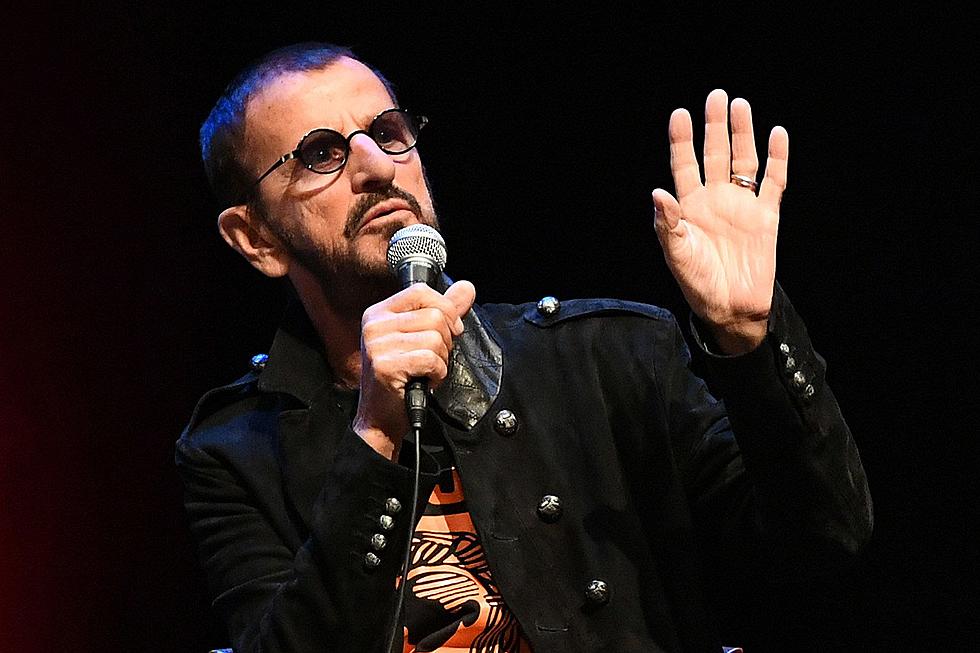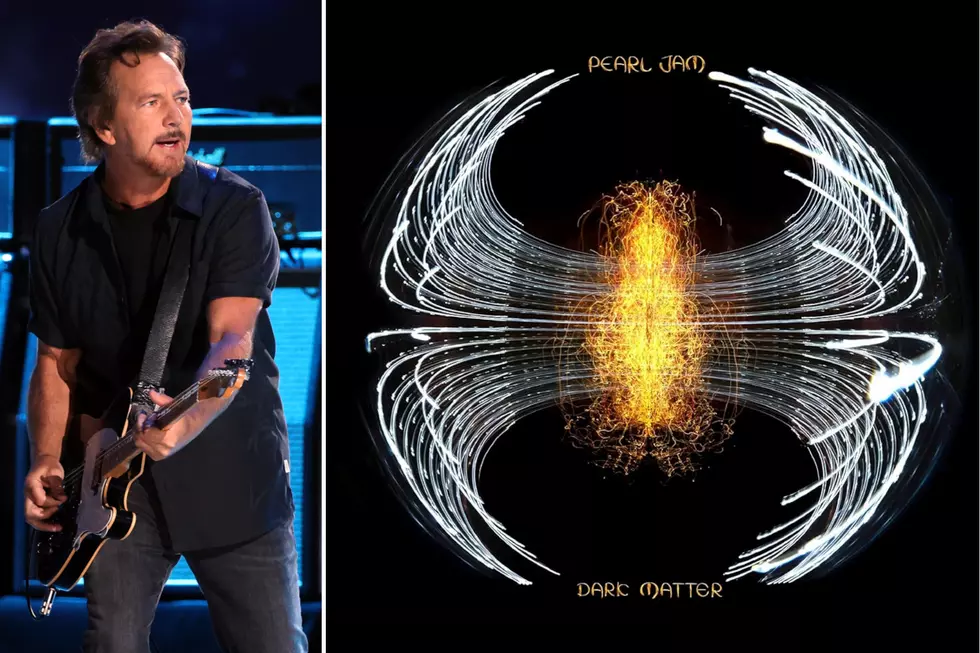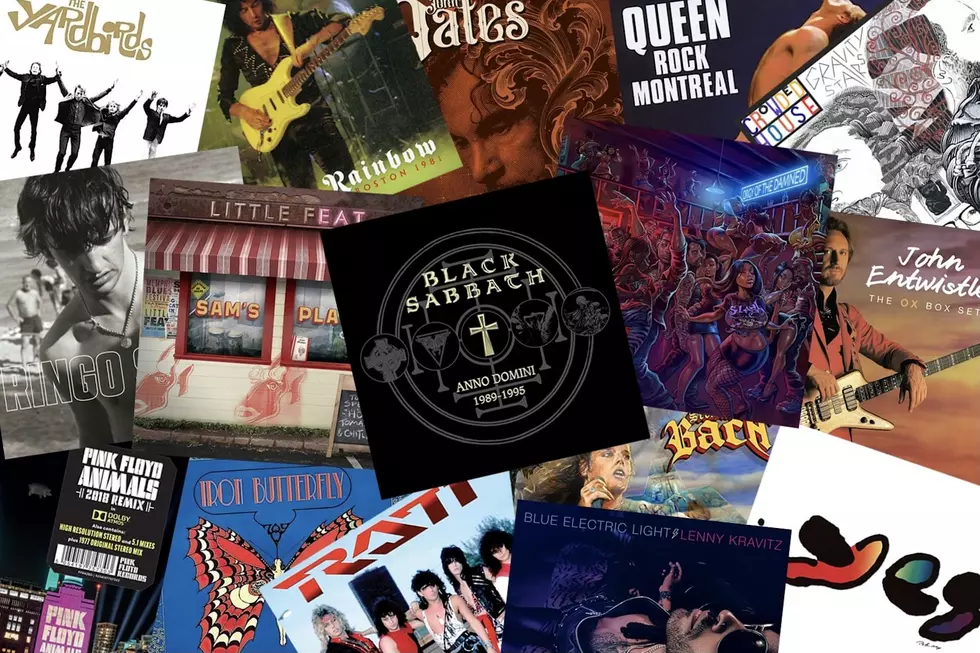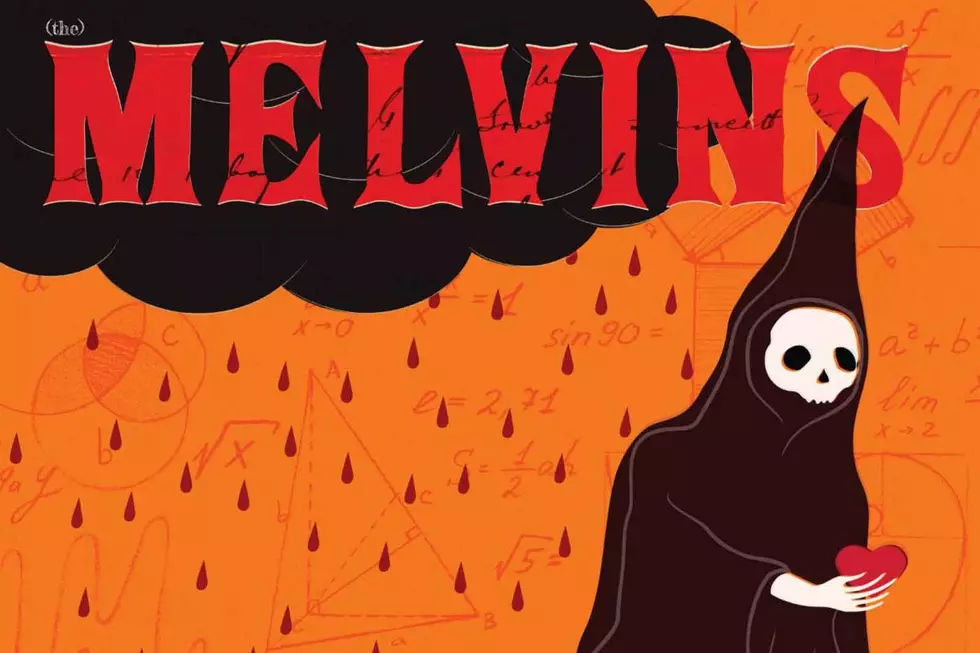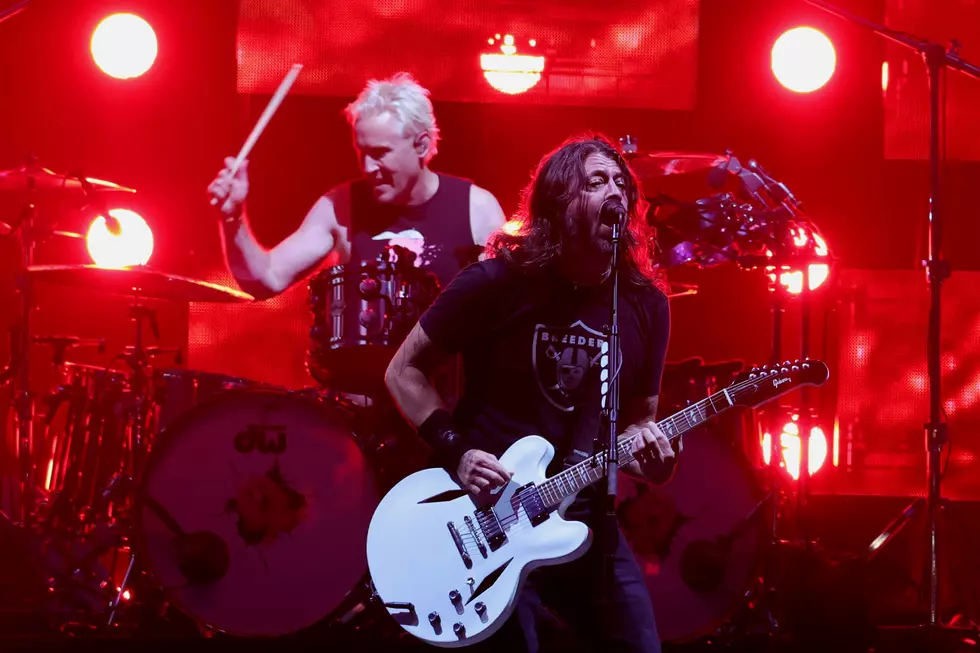
Dave Edmunds Talks About New Album and Working With Music Legends: Exclusive Interview
In addition to Dave Edmunds' stint with the band Rockpile and his long list of solo albums, he's worked with his share of legendary artists throughout the years. Paul McCartney, Jeff Lynne, Elvis Costello and Carl Perkins are just a few of the people who have crossed paths with Edmunds over the course of his career. Which makes the title of his latest solo release, On Guitar… Dave Edmunds: Rags & Classics, an appropriate one.
Only this time, it’s just Edmunds in the studio, playing all of the instruments for his takes on a batch of well-known classics -- from “A Whiter Shade of Pale” to “God Only Knows” and “Your Song,” and even R. Kelly's “I Believe I Can Fly.”
“I recorded this, off and on, at home over a period of four months," Edmunds explains in a press release for the new album. "But I guess the idea of making a guitar album had been lurking subconsciously since I was 17 years of age. That's when I discovered the fascinating guitar styles of Chet Atkins, Merle Travis and, later, Jerry Reed, along with other truly innovative guitarists of the ‘50s and ‘60s music revolution.”
During a recent conversation with Ultimate Classic Rock, Edmunds related the complete story about the origins of the album. He also discussed a few of his famous collaborations and productions.
The new album sounds like it's an idea you’ve had in your head for a long time.
Kind of. I wasn’t sure I’d ever get around to it. I’ve got a little studio at home, and I used to record on analog tape when I had a studio in L.A. But I’ve gone digital ... I got the studio set up and I just started messing around and doing things without really having much of a plan for it or even plans to release it. I record for fun a lot of the time, and that’s how some of these tracks came together. Then it started shaping up to be a guitar album, so I thought, “Well, I’ll keep going and see where we get.”
Had you ever tried to go down the road on a project like this before?
Doing instrumentals? Not a whole album, but I’ve thrown in a few things. About 15 years ago, I decided I wanted to see if I could do some touring in America, just solo acoustic gigs, and so it gave me a chance to do some of the old Merle Travis, Chet Atkins, Jerry Reed guitar picking stuff, mixed in with some of the songs that I’m known for. So that got me up to speed a bit in terms of my playing. I don’t know if instrumentals are a good idea on a vocal album, but [for On Guitar] I wanted to do well-known songs that people would recognize, not just obscure instrumentals or newly written stuff that people would find it difficult to relate to.
I love the vibe of what you did with “Black Mountain Rag.”
Yeah, from Chet Atkins! I got really into that when I was about 13 or 15 years old. I had an EP by Merle Travis and then later started listening to Chet Atkins. Then soon after that, I got into all of the rock 'n' roll stuff and left that behind. But I’ve picked it up in the last few years and gone back to try to catch up with what I missed and didn’t learn back then. A guy called Tommy Emmanuel inspired me to do that -- he’s one of the best acoustic guitar players in the world right now. He’s a good friend of mine and I’ve played with him a few times and that might have put it into my head to make a guitar album, but [to] cover the electric and then go into the acoustic along with well-known songs and then some of the more obscure stuff, just to cover the whole spectrum.
Were there any songs that you tried to do that didn’t quite get where you wanted them to be?
No, strangely enough. I find that if you keep tapping away at something and if you really believe and you have something in your head, you’ll eventually get there.
Were there challenges?
Getting it finished, I suppose. It seemed never-ending at one point. But then as I got over halfway through, I got more encouraged to keep at it. I just record when I feel like it. If it had been booking a studio and hiring musicians and getting an engineer and a producer, this album would never have gotten made. It’s just a hobby, you know? Like most of my career has been really. It’s never been goal-oriented, it’s just a hobby, a what-shall-we-do-next? sort of thing.
Have any of the artists heard your versions of the songs?
I don’t know. I’d like to send a copy to Jeff Beck -- not that I’m doing any Jeff Beck songs on there. I’d like Elton John to hear “Your Song,” because I’m quite proud of it. Kate Bush, I think, and the producer, would be interested “Wuthering Heights.” So I might get around to that.
Can you remember the first time that you heard “God Only Knows”?
Nineteen-sixty-six. That’s been a favorite of mine and many other people, and it’s probably one of the most perfect pop records ever. I’ve taken it apart musically as I’m listening to it, trying to figure out who is doing what and how it all came about. It’s so weird. It starts off as two accordions playing and a French horn. That’s a strange lineup to start a record! I’d worked out all of the harmonies, how they did that, who is singing what lines and yeah, you just pick on some of it and you say, “I wonder ;... ” It’s pretty outrageous.
I’ve been doing that all of my career with diversity in music -- not a unified style like, say, AC/DC or something where you know what you’re going to get. As much as I love those guys and people who do that, having a unified sound and a style of their own, but I’ve been all over the place. A bit of rockabilly, a bit of bluegrass, a bit of country with Carlene Carter and then pop stuff, and then I like to sing harmonies like Brian Wilson.
You produced the Everly Brothers reunion album EB’84. What was it like working with Phil and Don at that point?
It was interesting. I was very nervous for months before, as well leading up to it. And then I learned some things about Don and Phil -- like, you can never be friends with both of them at the same time. Each one has their own circle of friends, and they don’t overlap. They weren’t that keen on singing, like, working hard at it. Don was very friendly -- he’s the one I clicked with, not so much with Phil. Phil would show up late and Don would come into the studio, and he liked to sit there and tell stories about the old days. And he had a load of stories. But to actually get them in front of a microphone and work at it was not the easiest thing.
And yet I would guess that for you, the results once you were able to do that, were quite something. I can remember seeing the concert video that came out of the reunion that they did around that time. I watched that not long after Phil passed, and it’s still an astounding watch more than 30 years later, just the harmonies and the talents those guys had together.
Was that the Albert Hall gig?
That’s the one.
Yeah, I was there for that. Soon after, I got the call to do [the album] and I had to pinch myself -- I couldn’t believe it. We did that, and I got Paul McCartney to write a song for them and found a few [other songs]. I was the one looking around for the songs, really.
What are your memories of working with Jeff Lynne on your Information album?
I was mightily impressed with Jeff and the way he works in the studio. He’s sort of making it up as he goes along. I did the two tracks with him for the album, but a lot of people complained about that and I got some flak for it, I think because they heard a bit of synthesizer and it was like, “How dare you! You mustn’t do that!” And I thought, oh my God, what have I done?" And then I suggested when George Harrison was thinking of making a record but he wasn’t quite sure, I was in the process of moving to L.A. and George [said] “I might make a record or I might not,” and I said, “Why don’t you get in touch with Jeff Lynne? He’s magic in the studio.” After about two years of me telling him this, he finally got me to bring Jeff to the house. They hit it off and I moved to America and that was it -- I was out of the loop then.
Now looking back, I’m not sure why I was quite as enamored with Jeff ... although he is tremendously talented in the studio. Sometimes, I listen back to some ELO records that impressed me back then and they seem a bit dated now. A bit too contrived. And I wondered, well, perhaps I should have just stuck to [my own plans]. I only did it because I wanted to see what it was like to work with a producer and not be producing myself and see what would come of it and what the experience would be like. Well, he took over -- when he [produces something], he does all of the backing tracks and he got me playing a lot as well. In a way, I kind of regret that whole thing. I liked the first two tracks -- we did another three or four tracks after that and we shouldn’t have done that -- we should have left it where it was.
This is the 25th anniversary of Nick Lowe’s Party of One album. What are your memories about working on that record?
It’s a wonder it got made. Because Nick came to the studio with some great musicians, but with no rehearsal and no idea of the arrangements. He just had ideas and they were sorting them out in the studio. Nick is a very funny guy to be around when he’s drinking, and he likes to drink when he’s working, and he talks and talks and he’s a very entertaining guy. He was doing a lot of that. When we did try to record things, no one was doing anything -- they were just plodding through the chords of the song and then he’d say, “Oh, perhaps that’s not going to work.” Like “All Men Are Liars,” at one point, he said, “Nah, this isn’t going to work” and I went, “Whoa, hold it -- that’s too good! We’re not going to drop that.” I said, “You go in the other room with the guys and have your drinks and have a party or something.” And I played a lot on that, I played piano and the acoustic guitar and the six-string bass and I think I brought some discipline to the whole thing. I have a feeling that it might not have been completed if they hadn’t have had me or someone like me.
Because there was no discipline in the studio, no one knew what to do musically. There was no guidance and a lot of tracks were being dropped and I said, “No, no, no, let me just work with this stuff and I’ll try and get it back together.” And the album now, I think it’s terrific. I think it’s a really unique album.
Do you think the challenges of wrangling that album and getting it to the finish line, did that keep the two of you from doing further work together?
No, we’d actually broken up the band with the Rockpile thing, that was all over. But Nick just came back to me and said, “Well, you’re out in L.A. and I’m going to record in L.A., would you come and do the production?" And that was it. We got on fine. It was great. Good fun.
Will you get a chance to play some of this new stuff live when you tour?
I don’t know. I haven’t thought of it. I hadn’t recorded it in any way that I was thinking of doing it live. I would have to get to the band that I work with in Sweden. The next time we rehearse, I might try some [of the material] -- it’s only a four piece band. So I don’t know yet. We’ll see how this goes.
How did you end up working with guys in Sweden?
Because it’s a great market for me! They’re stuck in this time warp of late ‘50s and early ‘60s rock 'n' roll stuff. They go about their business in the usual way, but when they get to a gig, and you know, the weekends, [they really have a lot of fun]. They have these classic car rallies where there’s thousands of American classic cars there that they bring out in the summer. It’s a great market for me. I can practically go there whenever I want and either do a tour or a weekend of gigs. I was just working with this band over the years and that’s my favorite outfit -- the best band I’ve ever had. It’s been confined to Sweden so far, but we’re thinking of going to Australia at the beginning of next year. And then hopefully onto America.
Are you working on any other material at the moment?
No, not at the moment. I just finished this and I have the other album, Again, which I put out almost two years ago. But it wasn’t released officially in America, not the CD, because of contractual things. But I recorded five new songs for that -- and wrote them. Then I got onto this one, so no, I’m just sitting back at the moment and I’m planning the next year or so.
See the Top 100 Albums of the '70s
Rock and Roll Hall of Fame's Worst Snubs
More From Ultimate Classic Rock



